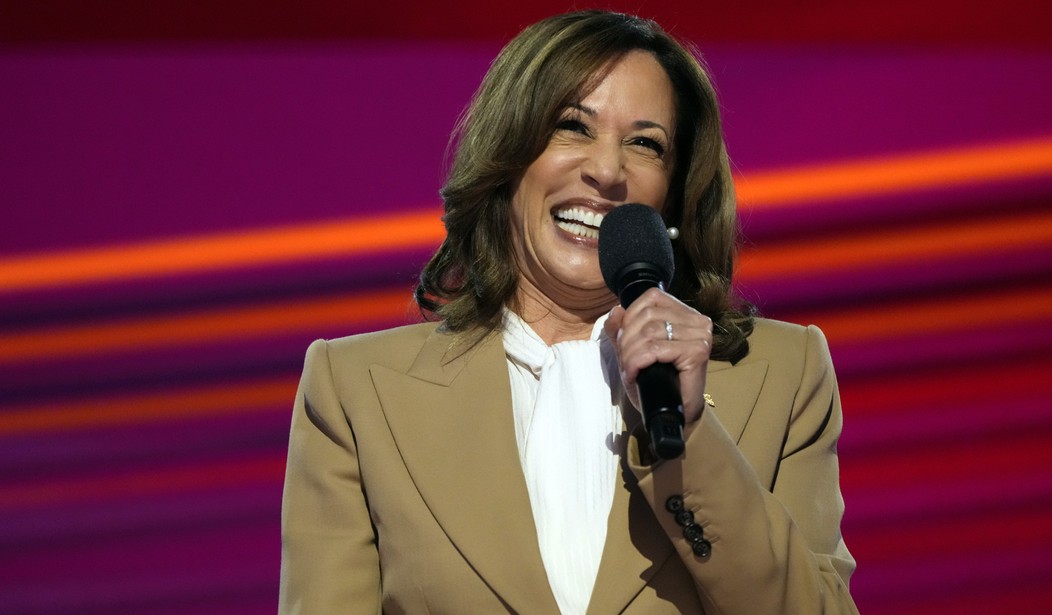John McWhorter is never afraid to go there and today he has a new opinion piece at the NY Times doing just that. His argument is that all of the fluffy coverage of Kamala Harris is really cover for something people feel awkward talking about. It's not her cackle that has Democrats ecstatic, it's her skin color.
Imagine if after President Biden stepped down, the party had united around a white male candidate. If the person accepting the nomination last week had been Gavin Newsom, Beto O’Rourke or even Tim Walz, there would have been some joy, sure. But not of the theatrical degree we saw in Chicago. Not too many people in the audience would be crying with joy as they did for Harris.
Let’s take it further. Suppose the nominee were a white woman. There would surely be some joy, of the Hillary vintage. Some, but not like in Chicago. Tearful beaming elation for Amy Klobuchar? Gretchen Whitmer? Kirsten Gillibrand? I really doubt it.
That’s because a good deal of the joy people keep talking about is a result of one fact: that Harris is Black.
As McWhorter sees it, the joy vibe is ultimately a way of glossing over Harris' limitations as a person. He recommends a different approach.
...let’s face it, nothing about Harris just now justifies her being treated as some kind of once-in-a-generation phenom or savior. This is not about substance, but optics. Harris is being received on the basis of a category she fits into rather than who she is as an individual.
It’s time, then, to evaluate Harris according to — you knew this was coming — the content of her character.
McWhorter isn't the only commentator who has made this connection. CNN's John Blake, who frequently writes about racial issues, had a story earlier this week arguing this was about "black joy."
Harris isn’t just “campaigning on joy,” as so many commentators have recently noted. She is also tapping into something called the “Black Joy” movement. Led by Black artists, authors, activists and others, the movement declares that Black people’s humanity will not be defined by trauma or oppression but by something else:
“A joy that no White man can steal.”
That’s how the author Tracey Michae’l Lewis-Giggetts describes the movement’s essence in her book, “Black Joy.”
As Blake sees it, Harris' constant cackling is an anti-racist act.
But there is a racial history behind Harris’ laughter that’s easy to miss.
Black laughter was used as a weapon against Black people long before Trump wielded it against Harris by dismissing her as “Laffin’ Kamala.” Slaveowners created the myth of the “happy-go-lucky darkie” to imply that Black people were happy being enslaved or being second-class citizens. To survive, many Black people played along by flashing a submissive, “just-happy-to-be-here, boss” laughter around White people.
Yet other Black people chose to laugh when and how they wanted — even if White folks didn’t like it.
I've argued before that I think the whole "joy" thing was cooked up by Harris' handlers as a way to recontextualize her worst tic as a candidate, i.e. her habit of bursting into hysterics when she is losing her audience's attention. I still think that's likely the truth of it, but Blake's take adds a very DiAngelo-esque spin on that effort. By framing this as "black joy" and a revolutionary act, he frames anyone who dares to criticizes Harris' cackling as a bunch of racist white folks.
Of course there's a much simpler explanation, one I think most people already know is true. Harris is way out of her depth and her laughter isn't about joy it's about her own awkwardness as a speaker. She laughs to bring people on her side because she can't accomplish that with her words alone. She needs to lighten the mood, to make things collegial rather than adversarial. The laugh is socially strategic and you have to admit it was a stroke of genius to embrace it rather than try to downplay it.
But the fact remains that none of this will matter if Harris wins and is actually called on to handle a crisis. In the midst of war or natural disaster no one is going to want to hear that awkward laugh or any flippant commentary about her joy.








Join the conversation as a VIP Member